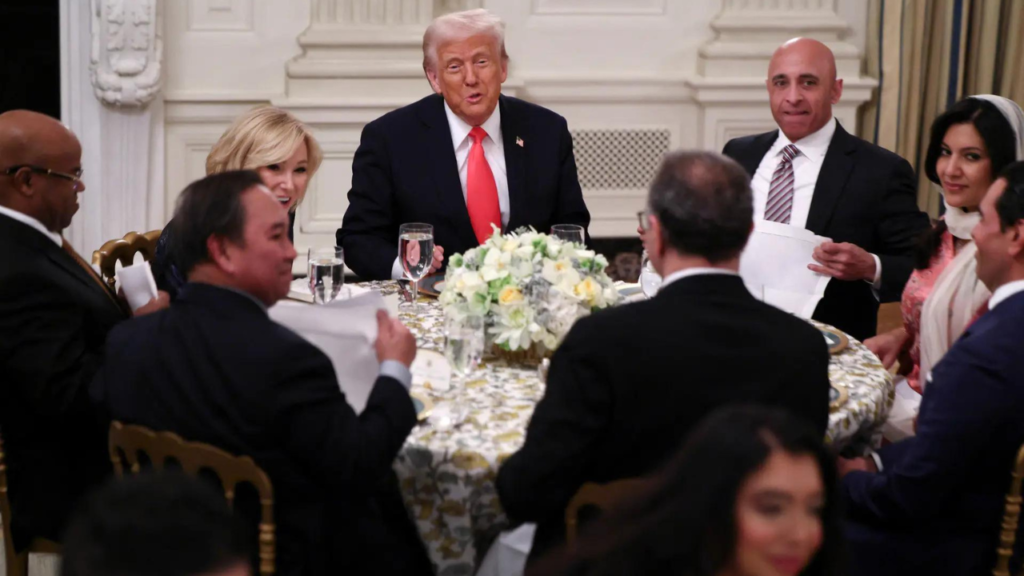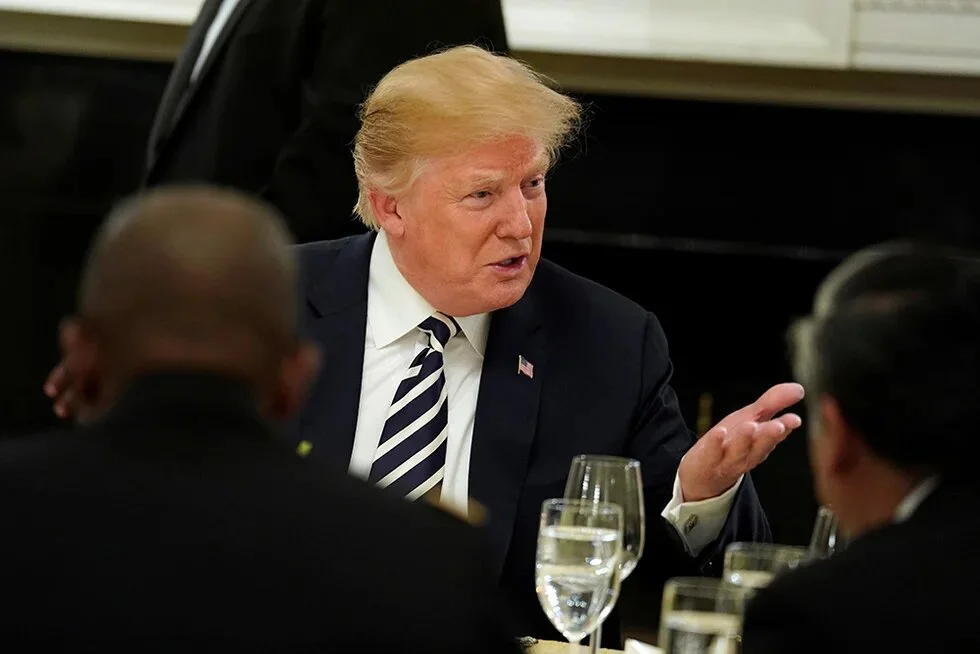US President Donald Trump marked the Islamic holy month of Ramadan by hosting the first White House Iftar dinner of his presidency, acknowledging the strong support he received from Muslim Americans during the 2024 election.
Trump Recognizes Muslim American Support in 2024 Election
Speaking in the State Dining Room, Trump extended his greetings: “Ramadan Mubarak to our Muslim friends.” He expressed appreciation for the “hundreds of thousands” of Muslim Americans who voted for him, stating, “The Muslim community was there for us in November, and we will be there for you.”
The event was attended by prominent Muslim community leaders, diplomats—including Pakistan’s Ambassador to the US, Rizwan Saeed—and key government officials.
Trump’s Commitment to Middle East Peace
During his address, Trump reaffirmed his commitment to the Muslim community and ongoing peace efforts in the Middle East. “We are keeping our promises to the Muslim community. My administration is actively engaged in diplomatic efforts to forge lasting peace, building upon the historic Abraham Accords,” he said.
The Abraham Accords, initially signed during Trump’s first term, established diplomatic relations between Israel and several Arab nations. Trump emphasized their significance: “We had agreements with four major countries, but nothing substantial followed. Now, we are working to expand these accords, and discussions are already underway.”
Muslim Voter Shift and Ceasefire Efforts
Many Muslim Americans cast their votes against then-Vice President Kamala Harris, protesting the Biden administration’s support for Israel’s military actions in Gaza following the October 7, 2023, attacks. Some credit Trump for influencing a ceasefire, although it was reached before he officially took office.

Throughout his campaign, Trump had vowed to end the conflict. A ceasefire was brokered shortly before his inauguration in January, but the truce was shattered earlier this month when Israel resumed its offensive in Gaza, leading to significant casualties among Palestinians.
Trump’s Stance on Gaza and Israel Support
Despite the humanitarian crisis, Trump has maintained strong backing for Israel, advocating for billions in additional military aid. His controversial proposal to take control of Gaza and relocate its population of approximately 2 million Palestinians has been widely condemned. Critics argue that such a move disregards Palestinian sovereignty and humanitarian concerns.
Conclusion
Trump’s Ramadan Iftar at the White House highlighted his administration’s evolving relationship with the Muslim American community. As tensions in the Middle East persist, his policies and diplomatic strategies will continue to shape his standing among Muslim voters and international leaders alike.
With the 2024 election behind him, Trump’s commitment to Middle East peace and his approach toward Gaza remain critical global concerns.




